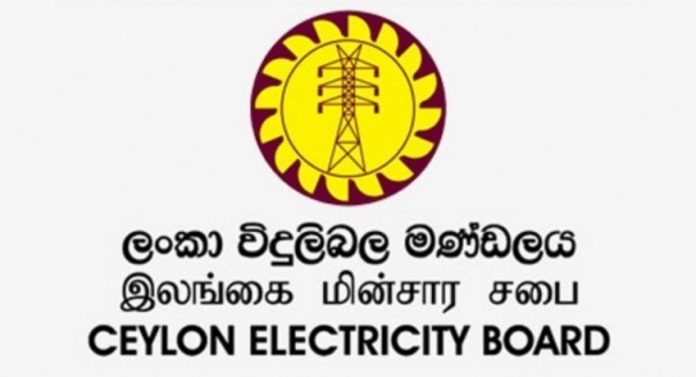The Ceylon Electricity Board (CEB) is facing a major financial crisis, official sources confirmed.
The annual loss of the Ceylon Electricity Board was between 80 and 85 billion rupees and by 2020 it was possible to reduce that loss to 45 billion rupees,A CEB official said adding that it is now aggravated to a crisis level with dwindling revenue.
He was addressing the Galle District Rural Infrastructure Committee under the National Program to Uplift the Rural Economy.
It costs Rs. 23.87 per unit to generate electricity in Sri Lanka. But a power unit is provided for Rs.16.60. Accordingly a loss of Rs. 07 per unit of electricity is incurred. The annual loss is around Rs. 16 billion,” he explained.
Especially for industrialists a unit of electricity generated at Rs. 23 is provided at a cost of Rs. 12.50.There are about 474,000 street lights in Sri Lanka. It will cost around Rs. 02 million. For 2.7 million low income families from 01 to 30 units are charged at Rs. 3.50
From 30 units electricity is charged at Rs. 5.50. As a result the CEB incurs a loss of Rs. 20 billion annually, he added.
A deepening financial crisis at Sri Lanka’s state-run Ceylon Electricity Board is forcing the utility turn on more expensive plants while cheaper plants which do not have cash to buy fuel is idle, informed sources said.
Under standard operating rules the CEB run thermal plants on a ‘merit order’ starting the cheapest plants first and the most expensive plants last, to supplement coal which is the main source of base load.
In general gas turbines are run last.The operating costs of a plant is based on the type of fuel (coal is cheapest) the type of plant, and in the case of a private plant the level of competition at the time it was acquired which will determine the price.
Some Independent Power Producers are cheaper than others partly because they are more efficient or they had bid lower at procurement due to competition and are offsetting energy costs with part of their capacity charge.
The CEB has now exceeded the 80 billion rupee credit limit given by the Ceylon Petroleum Corporation.
Ceylon Electricty Board (CEB) is facing severe financial crisis following the dried up of money in a certain state bank accounts resulting in the return of cheques recently, CEB informed sources said.
This bank has already halted the granting of over drafts to the CEB and the finance manager the of the bank has ordered the finace division not to issue cheques of the particular bank which has no sufficient funds in CEB accounts.
This state bank has already granted a loan facility of Rs. 28 billion surpassing the normal limit of Rs 12 of such loans.
A senior official of the CEB said that the management of the electricity utility is facing cash flow problem making it difficult to pay even April salary of employees
